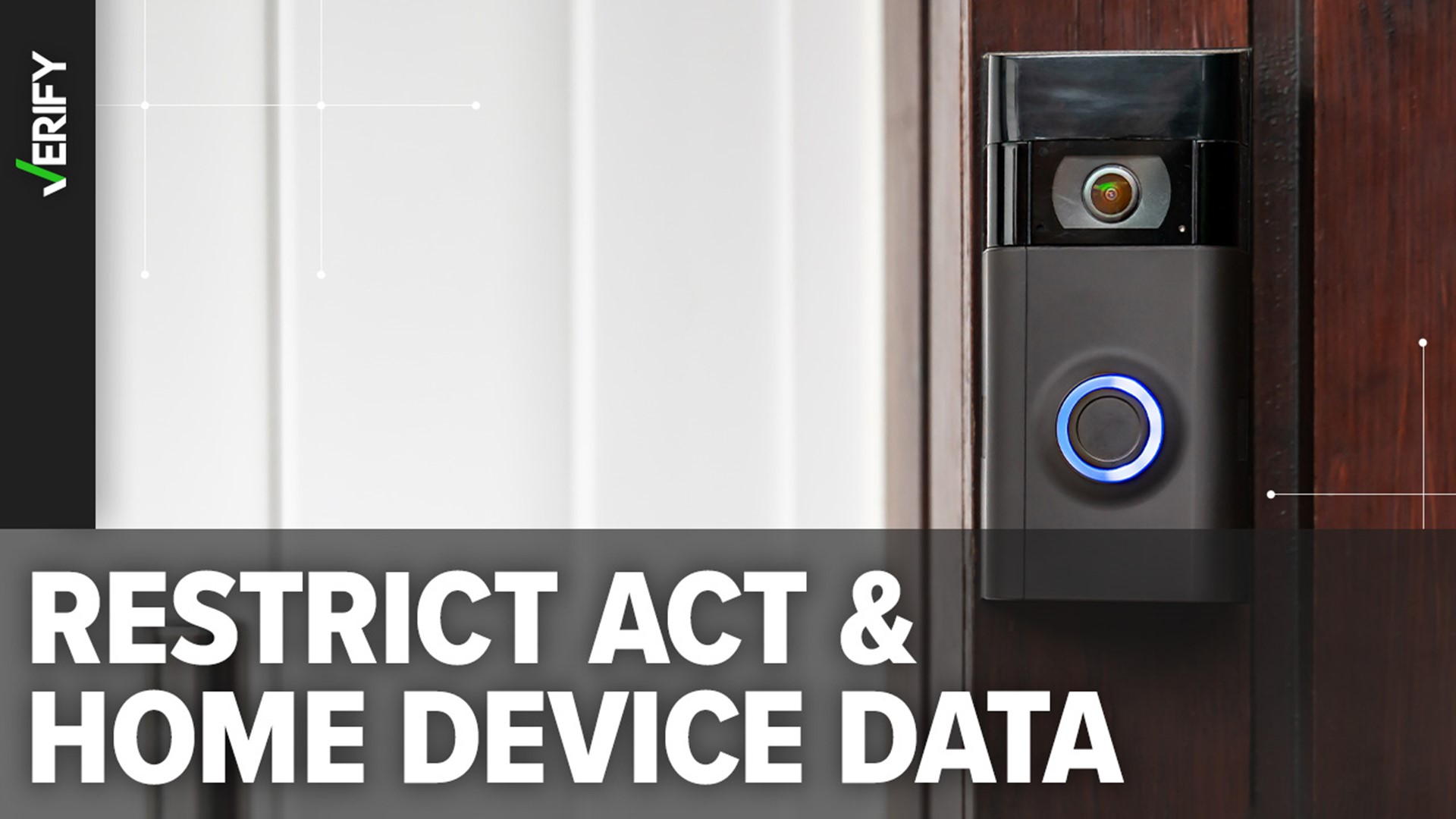On March 7, a bipartisan group of 13 senators, including Sen. Mark Warner (D-Va.) and Sen. John Thune (R-S.D.), introduced the RESTRICT Act in Congress amid concerns from some lawmakers that the popular social media app TikTok could be used by the Chinese government to spy on Americans. If signed into law, the RESTRICT Act could potentially ban TikTok in the United States.
Since the bill was first introduced, several viral social media posts have claimed that the RESTRICT Act could also give the U.S. government access to Americans’ personal data from their home devices, such as Ring security cameras, Amazon Echo and Google Nest.
THE QUESTION
Would the RESTRICT Act give the federal government access to data from your home devices?
THE SOURCES
THE ANSWER
No, the RESTRICT Act would not give the federal government access to data from your home devices
WHAT WE FOUND
The RESTRICT Act would not give the federal government access to the personal data found on individual Americans’ home security or smart devices, according to both the bill’s sponsor and critics of the legislation. Instead, the act allows the government to investigate potential national security threats by analyzing foreign-owned technology companies, not individual users in the U.S., whose data is protected by the Constitution.
Many of the viral social media posts that have shared this claim focus on Section 5 of the RESTRICT Act. According to the bill’s text, Section 5 directs the Secretary of Commerce to review wireless networks, various access points, cloud storage and other types of technology that were made by countries that the U.S. considers to be foreign adversaries, such as China, Russia, Cuba, Iran, North Korea or Venezuela, to ensure it is not being used to spy on Americans or steal their data.
If the Secretary of Commerce determines the technology does threaten national security, then the bill says Congress must be publicly notified. Lawmakers could then decide to impose privacy or corporate transparency requirements on the specific product or ban it altogether.
In an email, a spokesperson from Sen. Mark Warner’s office told VERIFY that the claims in regard to the federal government having access to Americans’ home devices are “false.” On March 31, Warner also addressed some of what he calls “misconceptions” about the RESTRICT Act in a thread on Twitter.
“This bill doesn’t give the government any power to track what you’re searching! In fact, it is aimed at COUNTERING foreign surveillance from authoritarian nations,” Warner said. “This bill takes on big, systemic threats to our national security – not individual users.”
Even organizations that oppose the bill, like the American Civil Liberties Union (ACLU) and the Electronic Frontier Foundation (EFF), agree that the RESTRICT Act would not give the government access to Americans’ private data on their home devices.
“Is the RESTRICT Act a surveillance bill that would allow the government access to your devices? Not exactly,” the EFF wrote in an April 4 report about the bill.
EFF explains that under the RESTRICT Act, the Secretary of Commerce could demand information from a company owned by a foreign adversary if they are under investigation. That company could be required to share some user data with certain government entities. But the EFF says “there are some important confidentiality requirements protecting this type of data.”
The ACLU also told VERIFY that the Fourth Amendment already protects most Americans’ personal information from the federal government.
As of April 7, Congress has not taken any action toward passing the RESTRICT Act since it was introduced in March. U.S. Secretary of Commerce Gina Raimondo, National Security Advisor Jake Sullivan and Deputy Attorney General Lisa Monaco have endorsed the bill.

